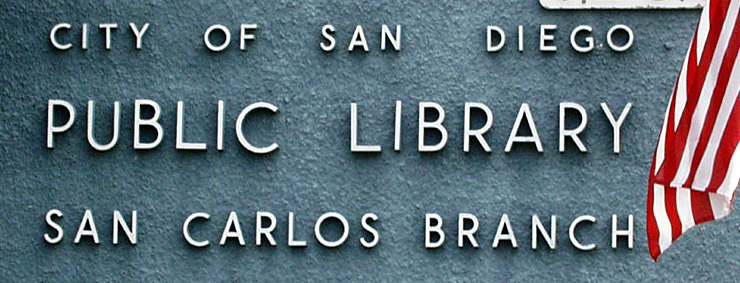The Hadassah Jewish Fmily Book of Heath and Wellness by
Robin E. Berman, Arthur Kurzweil and Dale Mintz; Jossey-Bass publisher; 2006,
503 pages, $34.95.
By Donald H. Harrison
SAN DIEGO—Call this article both a commendation and a
recommendation.
I would like to commend Hadassah for publishing this wonderful
womb-to-tomb book covering various issues in health, religious practices and
medical ethics. It's a volume that any family is likely to consult on
numerous occasions.
Further, I recommend that you check this book out from the library,
as I did, and if you like it, buy it for your own personal library. I think at
different times, members of your family will be glad it's there. It
includes essays by doctors, rabbis, psychologists, social workers—a panoply
of Jewish professionals.
Their essays are not intended to be the be-all and end-all of medical
advice— you must consult your own physician on matters specifically
affecting your own health. But what the essays do is to provide a framework
for these kinds of issues—a starting place, if you will—that may help you
decide what questions you want to ask a professional, or how you personally
want to deal with a problem.
For example, my father-in-law, Sam
Zeiden, 87, is well enough that he will be released tomorrow from Sharp
Grossmont Rehabilitation Center, where he has spent several weeks following
his transfer from Scripps Green Hospital. After undergoing a heart valve
replacement and a quadruple bypass, his recovery was slow but steady.
Each step along the way, he had what Hillary Clinton might term a
"village" of wonderful health care professionals, whom Nancy
and I would like to publicly thank: At Scripps Green, they were Dr. James
Hemp, who performed the surgery: Dr. David S. Rubenson, his
cardiologist; Dr. Andrew King, a kidney specialist; Bruce Armstrong, a
physician's assistant, and Mark Kohout, a speech therapist.
At Sharp Grossmont Rehabilitation
center, our heartfelt thanks go to Dr. Franklin Kalmar, who supervised
his care and was gentle, kind, patient, and always willing to explain.
Our appreciation also goes to the staff there of occupational therapists,
speech therapists, and physical therapists who assisted dad on his road to
recovery.
Assuming that you don't have doctors like Hemp, Rubenson, King or Kalmar with
whom to consult, as was our privilege, you can start your quest for knowledge
concerning various kinds of issues with Hadassah's wonderful book of essays.
Given that Dad Zeiden now will be staying with us, at least as he continues to
get stronger, I wondered if the Hadassah book had any advice. I found
myself reading Chapter 45, an essay by Rabbi Sandra Rosenthal Berliner
entitled, "Honoring the Elderly." Judaism, she said,
"places a premium on the mitzvah of hiddur pnei zaken: honoring the
elderly. The Midrash says. "He who welcomes an old man
is as if he welcomed the Schechinah (God's presence.)"
There is a commandment (Leviticus 19:32) that says: "You shall rise
before the aged and show deference to the old; you shall fear your God: I am
the Lord." Besides literally following that commandment, counsels
Rabbi Berliner, "listen to the stories of parents and grandparents.
Record them and write them down. Those histories are precious legacies for
future generations; they remind those who are still young and healthy that,
indeed, Bubbe or Zayde was once a child, a teenager or a young parent..."
If he's game, so am I.
Another important event in our family was an announcement by my daughter, Sandi
Masori, that she and Shahar
are going to have a second child next March. As their son, Shor, already
is five, and had a brit milah, ritual circumcision is not a concern for
them—should the new baby prove to be a boy.
But if Sandi and Shahar, as parents, had questions about brit milah, Cantor
Philip L. Sherman, who not only sings but also is a mohel, answers questions
in Chapter 37 that parents might typically ask. How much pain does the
baby feel? Is there an anesthetic that can be used? What do you do
with the foreskin? Does jaundice prevent a bris from taking place? What
if the baby is born prematurely? How do we explain to young
children or the siblings of the new baby what a bris is?
Okay, that last
question that might apply to Shor. Here's how Sherman answers:
"My recommendation is to tell them its a party for the new baby. I
don't think very young children need to have the surgical aspects of the
bris explained. In general, I recommend that children under the age of
twelve not be permitted to watch the actual bris. I try to include the
older siblings in the ceremony [before the actual bris takes place]; you can
tell them that part of the celebration is a big-brother or big-sister
party."
I'm not sure Sandi and Shahar will agree with Sherman's advice, given Sandi's
often-stated belief in answering a child's questions honestly up to the point
that the child is satisfied, or loses interest. But that's not the
point. The book is good as a discussion starter, not as a conversation
finisher.
Controversial health issues also are dealt with in this book. Part
Eleven, for example, offers "Jewish views on AIDS, Smoking, Abortion, and
Eating Disorders." Clearly, this section may stimulate some very
interesting discussions.
Containing brief biographical descriptions of the various essay writers, as
well as a fairly comprehensive index, The Hadassah Jewish Family Book of
Health and Wellness is an easy to use and stimulating to read reference
book.


